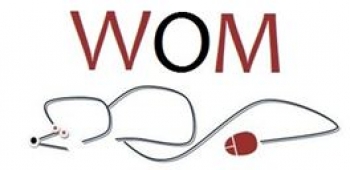I first heard this used in mid-2012 and over the past few months it has increasingly been liberally used by e-marketers and digital experts.
The idea behind “word of mouse” is, like its namesake, that people trust opinions from friends (and even strangers – now conveniently called faceless “frenemies”) and if they see something on the internet – well it must be true. It is why viral marketing works so well. Monkey see, money do!!!
Because the internet is now almost ubiquitous (mobile smartphones and tablet devices already outnumber desktop computers) and pervasive (wii-fi, wireless 3/4G and better data access everywhere) – opinion spreads rapidly via blogs, forums, chat sites, facebook, linkedin, instagram and more. Unlike placing an advertisement in a printed magazine many companies have moved to digital media. Not because it is cheaper but because it is faster and can give almost immediate and measurable results (click through and page visits to name a few).
WOM is fast becoming the perfect promotional tool because each recipient has the potential to become a “referrer” – which means that you need to do everything you can to encourage live tweets and develop viral marketing campaigns using your immediate networks and their networks.
A recent World Public Relations Congress organised by MCI Australia shattered attendance records driven by a clever social media campaign developed by MCI’s MarCom Zone. A key feature of the pre-event promotion was the appointment of a number of digital partners (mainly sponsors and speakers) to help generate interest in the event. During the event it reached the top Australia twitter trend and the blog and apps were constantly being updated and used. For the first time MCI has real evidence that properly designed and managed social media campaigns can work for the right event and audience.
Web 1.0 (static web pages) took a decade to move on to Web 2.0 (interaction), less than two years to graduate to Web 3.0 (Social web - facebook et all) and I expect that by the end of 2013 we will see that replaced by Web 4.0 - “mobile” web which has a whole new set of rules when you add smartphone and tablet capabilities like “user profiles” including location and preferences to the mix.
To me (a veteran of the web who is concerned about its potential to do harm) it is scary when you realise just how much personal information is able to be used to tailor web responses to your individual needs. But to Gen Y and younger it is all about the web serving them – “live and earn”…






